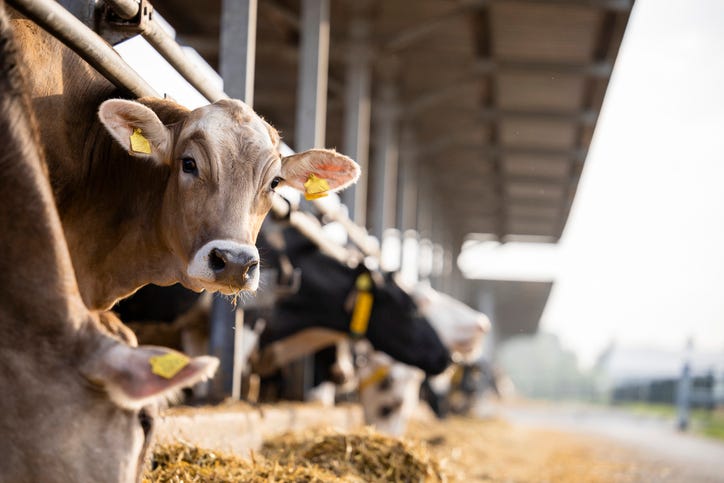
(WWJ) A second human case of bird flu has been confirmed in Michigan.
The Michigan Department of Health and Human Services (MDHHS) on Thursday announced that the infected person is farm worker, who worked closely with influenza A positive cows.
This worker was employed at a different farm than the case announced on May 22.
This virus in Michigan has been associated with the ongoing multistate outbreak of influenza A (H5N1), often referred to as bird flu.
As part of the ongoing response, MDHHS says state and local public health are closely monitoring for potential human cases, which can happen in people who are in close contact to infected animals.
While officials say this case in a second farm worker is not surprising, they believe the risk of human spread in the general public remains low.
“Michigan has led a swift public health response, and we have been tracking this situation closely since influenza A (H5N1) was detected in poultry and dairy herds in Michigan. Farmworkers who have been exposed to impacted animals have been asked to report even mild symptoms, and testing for the virus has been made available,” said Dr. Natasha Bagdasarian, chief medical executive, in a news release.
“With the first case in Michigan, eye symptoms occurred after a direct splash of infected milk to the eye. With this case, respiratory symptoms occurred after direct exposure to an infected cow. Neither individual was wearing full personal protective equipment (PPE). This tells us that direct exposure to infected livestock poses a risk to humans, and that PPE is an important tool in preventing spread among individuals who work on dairy and poultry farms. We have not seen signs of sustained human-to-human transmission, and the current health risk to the general public remains low.”
Michigan Department of Agriculture and Rural Development (MDARD) Director Tim Boring said they're continuing to work closely with federal, state, and local partners to address this issue. He said MDARD is offering help to dairy farms in need of additional protective equipment, and "will continue to take bold actions to assist farms impacted by this disease."
Meanwhile, MDHHS recommends that people working with chickens or cows get their seasonal flu vaccine. While the vaccine does not protect against bird flu viruses, getting your flu shot can reduce the risk of coinfection.
According to the CDC, people infected with bird flu can have no symptoms, although some may become seriously ill. Some people have mild symptoms, including eye redness (conjunctivitis), cough, sore throat, runny or stuffy nose, muscle or body aches, headaches and tiredness.
For more information about this virus, visit Michigan.gov/influenzaA.
